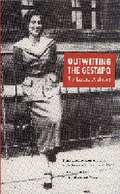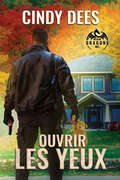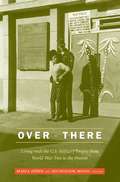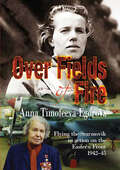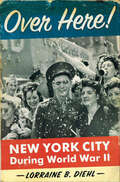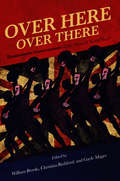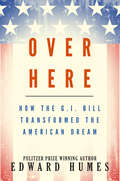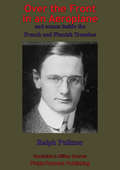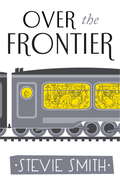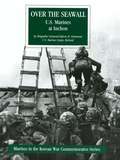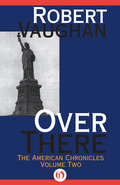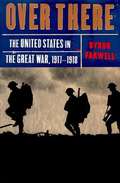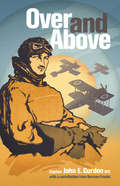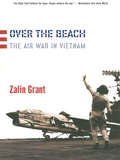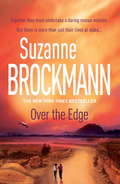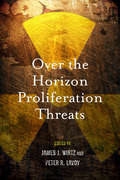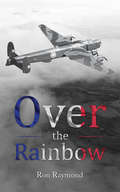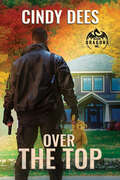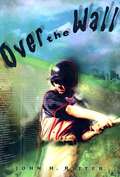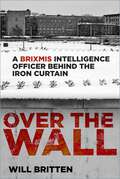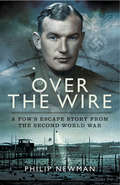- Table View
- List View
Outwitting the Gestapo
by Betsy Wing Konrad Bieber Lucie AubracThis is Aubrac's account of her participation in the Resistance: though pregnant, she took part in raids to free comrades, including her husband, from the prisons of Klaus Barbie.
Ouvrir les yeux (Black Dragons, Inc (Français))
by Cindy DeesJadis meilleurs amis, Gunner et Chas ne se sont pas revus depuis une décennie, mais ils mettent leurs différends de côté pour sauver une petite fille de dix-huit mois – et peut-être aussi eux-mêmes. Suite à un malencontreux accident, Gunner Vance se voit contraint de renoncer à sa carrière de Navy SEAL. Il est amer et en colère. C&’est alors que son ami d&’enfance et amant d&’un soir réclame son aide. Chasten Reed est enseignant, sa petite vie calme et solitaire se retrouve totalement bouleversée quand il découvre devant sa porte un cadavre et une petite fille. Pourchassé par des tueurs armés, Chas comprend vite qu&’un commando serait sa meilleure chance de rester en vie. La mission de Chas et de Gunner est simple : identifier l&’enfant et la ramener saine et sauve à sa famille. Mais « simple » n&’est pas synonyme de « facile » et le danger les guette à chaque étape de leur long périple à travers le pays, de la Nouvelle-Angleterre jusqu&’à Hawaï. La forte attraction sexuelle qui existe entre eux ne les protégera pas des balles. Les deux amants sauront-ils profiter de cette seconde chance que leur offre le destin ? Réussiront-ils à assouvir leur passion ou laisseront-ils leurs divergences d&’opinions les séparer ?
Over There: Living with the U.S. Military Empire from World War Two to the Present
by Seungsook Moon Maria HöhnOver There explores the social impact of America's global network of more than 700 military bases. It does so by examining interactions between U. S. soldiers and members of host communities in the three locations--South Korea, Japan and Okinawa, and West Germany--where more than-two thirds of American overseas bases and troops have been concentrated for the past six decades. The essays in this collection highlight the role of cultural and racial assumptions in the maintenance of the American military base system, and the ways that civil-military relations play out locally. Describing how political, spatial, and social arrangements shape relations between American garrisons and surrounding communities, they emphasize such factors as whether military bases are located in democratic nations or in authoritarian countries where cooperation with dictatorial regimes fuels resentment; whether bases are integrated into neighboring communities or isolated and surrounded by "camp towns" wholly dependent on their business; and whether the United States sends single soldiers without families on one-year tours of duty or soldiers who bring their families and serve longer tours. Analyzing the implications of these and other situations, the contributors address U. S. military-regulated relations between GIs and local women; the roles of American women, including military wives, abroad; local resistance to the U. S. military presence; and racism, sexism, and homophobia within the U. S. military. Over There is an essential examination of the American military as a global and transnational phenomenon. Contributors Donna Alvah Chris Ames Jeff Bennett Maria Hhn Seungsook Moon Christopher Nelson Robin Riley Michiko Takeuchi
Over Bethnal Green (The East End Sagas)
by Sally WorboyesIf they survive the war, will their marriage?Jessie Warner has married Tom Smith and their baby is almost due. Settling down into their new home in Bethnal Green, Jessie looks forward to her new life – even though Tom is continually getting into mischief that borders on the downright criminal. When war begins and Tom is called up almost at once, Jessie is left to cope with the baby alone.Meanwhile Jessie’s twin, Hannah, has been recruited to help at Bletchley Park. Immersed in her work decoding German messages, she has no idea of Jessie’s increasing desperation.Jessie struggles with the harsh realities of caring for a new baby during wartime and worries for her husband. When a friend from her past re-enters her life, offering some much-needed support, will she rethink her future?A gripping historical saga perfect for fans of Fenella J. Miller and Margaret Dickinson.
Over Bethnal Green: An unforgettable and romantic WWII saga set in the East End
by Sally Worboyes'She brings the East End to life' Barbara WindsorIn the East End, war brings gas masks and the terrifying prospect of air raids . . .Jessie Warner has married Tom Smith and their baby is almost due. Settling down into their new home in Bethnal Green, Jessie looks forward to her new life - even though Tom is continually getting into mischief that borders on the downright criminal. But then the grim outside world intrudes. When war begins and Tom is called up almost at once, Jessie is left to cope with the baby alone. Jessie's twin, Hannah, has been recruited to help at Bletchley Park and, immersed in her work decoding German messages, has no idea of Jessie's desperation.But things are about to get worse. When Tom does a runner and goes AWOL, Jessie will be left in a dire situation . . .A compelling and unforgettable WWII saga, perfect for fans of Nadine Dorries, Katie Flynn and Kitty Neale.
Over Bethnal Green: An unforgettable and romantic WWII saga set in the East End
by Sally Worboyes'She brings the East End to life' Barbara WindsorIn the East End, war brings gas masks and the terrifying prospect of air raids . . .Jessie Warner has married Tom Smith and their baby is almost due. Settling down into their new home in Bethnal Green, Jessie looks forward to her new life - even though Tom is continually getting into mischief that borders on the downright criminal. But then the grim outside world intrudes. When war begins and Tom is called up almost at once, Jessie is left to cope with the baby alone. Jessie's twin, Hannah, has been recruited to help at Bletchley Park and, immersed in her work decoding German messages, has no idea of Jessie's desperation.But things are about to get worse. When Tom does a runner and goes AWOL, Jessie will be left in a dire situation . . .A compelling and unforgettable WWII saga, perfect for fans of Nadine Dorries, Katie Flynn and Kitty Neale.
Over Fields of Fire: Flying the Sturmovik in Action on the Eastern Front 1942–45
by Anna Timofeeva-EgorovaDuring the 1930s the Soviet Union launched a major effort to create a modern Air Force. That process required training tens of thousands of pilots. Among those pilots were larger numbers of young women, training shoulder to shoulder with their male counterparts. A common training program of the day involved studying in 'flying clubs' during leisure hours, first using gliders and then training planes. Following this, the best graduates could enter military schools to become professional combat pilots or flight navigators. The author of this book passed through all of those stages and had become an experienced training pilot when the USSR entered the war. Volunteering for frontline duty, the author flew 130 combat missions piloting the U2 biplane in a liaison squadron. In the initial period of the war, the German Luftwaffe dominated the sky. Daily combat sorties demanded bravery and skill from the pilots of the liaison squadron operating obsolete, unarmed planes. Over the course of a year the author was shot down by German fighters three times but kept flying nevertheless. In late 1942 Anna Egorova became the first female pilot to fly the famous Sturmovik (ground attack) plane that played a major role in the ground battles of the Eastern Front. Earning the respect of her fellow male pilots, the author became not just a mature combat pilot, but a commanding officer. Over the course of two years the author advanced from ordinary pilot to the executive officer of the Squadron, and then was appointed Regimental navigator, in the process flying approximately 270 combat missions over the southern sector of the Eastern Front initially (Taman, the Crimea) before switching to the 1st Belorussian Front, and seeing action over White Russia and Poland. Flying on a mission over Poland in 1944 the author was shot down over a target by German flak. Severely burned, she was taken prisoner. After surviving in a German POW camp for 5 months, she was liberated by Soviet troops. After experiencing numerous humiliations as an 'ex-POW' in 1965 the author finally received a top military award, a long-delayed 'Golden Star' with the honorary title of 'Hero of the Soviet Union'. This is a quite unique story of courage, determination and bravery in the face of tremendous personal adversity. The many obstacles Anna had to cross before she could fly first the Po-2, then the Sturmovik, are recounted in detail, including her tough work helping to build the Moscow Metro before the outbreak of war. Above all, Over Fields of Fire is a very human story - sometimes sad, sometimes angry, filled with hope, at other times with near-despair, abundant in comradeship and professionalism – and never less than a large dose of determination!
Over Here!: New York City During World War II
by Lorraine B. DiehlA wonderfully nostalgic and inspiring look at the center of the home front during World War II—New York CityMore than any other place, New York was the center of action on the home front during World War II. As Hitler came to power in Germany, American Nazis goose-stepped in Yorkville on the Upper East Side, while recently arrived Jewish émigrés found refuge on the Upper West Side. When America joined the fight, enlisted men heading for battle in Europe or the Pacific streamed through Grand Central Terminal and Pennsylvania Station. The Brooklyn Navy Yard refitted ships, and Times Square overflowed with soldiers and sailors enjoying some much-needed R & R. German U-boats attacked convoys leaving New York Harbor. Silhouetted against the gleaming skyline, ships were easy prey—debris and even bodies washed up on Long Island beaches—until the city rallied under a stringently imposed dim-out.From Rockefeller Center's Victory Gardens and Manhattan's swanky nightclubs to metal-scrap drives and carless streets, Over Here! captures the excitement, trepidation, and bustle of this legendary city during wartime. Filled with the reminiscences of ordinary and famous New Yorkers, including Walter Cronkite, Barbara Walters, and Angela Lansbury, and rich in surprising detail—from Macy's blackout boutique to Mickey Mouse gas masks for kids—this engaging look back is an illuminating tour of New York on the front lines of the home front.
Over Here, Over There: Transatlantic Conversations on the Music of World War I
by William Brooks Christina Bashford Gayle MageeDuring the Great War, composers and performers created music that expressed common sentiments like patriotism, grief, and anxiety. Yet music also revealed the complexities of the partnership between France, Great Britain, Canada, and the United States. At times, music reaffirmed a commitment to the shared wartime mission. At other times, it reflected conflicting views about the war from one nation to another or within a single nation.Over Here, Over There examines how composition, performance, publication, recording, censorship, and policy shaped the Atlantic allies' musical response to the war. The first section of the collection offers studies of individuals. The second concentrates on communities, whether local, transnational, or on the spectrum in-between. Essay topics range from the sinking of the Lusitania through transformations of the entertainment industry to the influenza pandemic.Contributors: Christina Bashford, William Brooks, Deniz Ertan, Barbara L. Kelly, Kendra Preston Leonard, Gayle Magee, Jeffrey Magee, Michelle Meinhart, Brian C. Thompson, and Patrick Warfield
Over Here: How the G.I. Bill Transformed the American Dream
by Edward HumesExtraordinary stories of ordinary men and women whose lives were changed forever by landmark legislation—and how they went on to change the country. Inspiring war stories are familiar. But what about after-the-war stories? From a Pulitzer Prize–winning author, Over Here is the Greatest Generation’s after-the-war story—vivid portraits of how the original G.I. Bill empowered an entire generation and reinvented the nation. The G.I. Bill opened college education to the masses, transformed America from a nation of renters into a nation of homeowners, and enabled an era of prosperity never before seen in the world. Doctors, teachers, engineers, researchers, and Nobel Prize winners who had never considered college an option rewrote the American Dream thanks to this most visionary legislation. “Vivid . . . Deeply moving, alive with the thrill of people from modest backgrounds discovering that the opportunities available to them were far greater than anything they had dreamed of.” —Los Angeles Times “Poignant . . . The human dramas scattered throughout the narrative are irresistible.” —The Denver Post “Fascinating . . . The book’s statistics are eye-opening, but it’s the numerous personal vignettes that bring this account to life. . . . At its best, these passages are reminiscent of Studs Terkel’s Depression-era and World War II oral histories.” —The Plain Dealer
Over The Front In An Aeroplane, And Scenes Inside The French And Flemish Trenches [Illustrated Edition]
by Ralph PulitzerIncludes 16 photographs of the author and the planes in which he flew in.Perhaps the most influential journalist of his generation, Ralph Pulitzer was heir to a vast fortune and a publishing empire that rivalled even the Hearst organisation in the early years of the Twentieth Century. As Europe descended into the vicious fighting of the First World War, the American giant across the Atlantic was courted by the Allies to throw off her isolationist policy and join the Allied cause. As part of this political and propaganda offensive the French authorities decided to invite Mr Pulitzer on an aerial tour of the Frontlines, providing him unprecedented access to the view of the conflict from the skies above. Shortly after his whirlwind tour of the French frontlines, the author penned this book about his experiences of the trenches, men and fighting carried on the Western Front; to critical acclaim.
Over The Frontier (Virago Modern Classics #344)
by Stevie SmithIt is 1936. Pompey Casmilus (the heroine of Smith's debut, Novel on Yellow Paper) lives in London with her beloved Aunt, bothered by the menace of German militarism, bothered too by the humbug which confronts it, bothered most of all by her hopeless love affair with Freddy. Its ending plunges Pompey into melancholy; six months of rest and recuperation are prescribed and Pompey goes to Schloss Tilssen on the northern German border, only to fall in with a strange band of conspirators: the plum-coloured Mrs Pouncer, the absent-minded Colonel Peck and the dashing Major Tom Satterthwaite, whom Pompey comes to love.How Pompey gets into uniform and becomes a spy is only one of the astounding events in this extraordinary novel which, on a serious level, is also about a powerful investigation of power and cruelty in a world preparing for war.
Over The Seawall: U.S. Marines At Inchon [Illustrated Edition] (Marines In The Korean War Commemorative Series #8)
by Brigadier General Edwin H. SimmonsIncludes more than 40 maps, plans and illustrations.This volume in the official History of the Marine Corps chronicles the invasion by United States Marines at Inchon in the initial stages of the Korean War.The Battle of Inchon was an amphibious invasion and battle of the Korean War that resulted in a decisive victory and strategic reversal in favor of the United Nations. The operation involved some 75,000 troops and 261 naval vessels, and led to the recapture of the South Korea capital Seoul two weeks later. The code name for the operation was Operation Chromite. The battle began on 15 September 1950 and ended on 19 September. Through a surprise amphibious assault far from the Pusan Perimeter that UN and South Korean forces were desperately defending, the largely undefended city of Incheon was secured after being bombed by UN forces. The battle ended a string of victories by the invading North Korean People's Army (NKPA). The subsequent UN recapture of Seoul partially severed NKPA's supply lines in South Korea. The majority of United Nations ground forces involved were U.S. Marines, commanded by General of the Army Douglas MacArthur of the United States Army. MacArthur was the driving force behind the operation, overcoming the strong misgivings of more cautious generals to a risky assault over extremely unfavorable terrain.
Over There
by Robert VaughanVolume Two of Robert Vaughan's stunning American Chronicles follows the tumult of American during the second decade of the twentieth century. The indestructible Titanic goes down in the cold Arctic sea, millions of immigrants flood into the country, a bloody worker's revolution occurs in Russia, and in Sarajevo an assassination quickly ignites the flames of the First World War. It is 1912, and the Lady Lucinda Chetwynd-Dunleigh can hear the final strains of the ship's orchestra as the famous Titanic sinks below the surface of the water. She watches the doomed ship from a lifeboat full of weeping women, contemplating the 1,503 people who went down with it, including her husband and her clandestine American lover. Daredevil flyer Billy Canfield lets his passion for the new science of aeronautics lead him to greatness as one of the top flying aces of WWI, while at home rebellious suffragettes defy the law and face prison fighting for the right to vote. The second decade of the twentieth century poses new challenges for America's bravest and strongest, but with danger comes the promise of even greater freedom.
Over and Above
by Captain John E. GurdonA fictionalized World War I memoir by RAF pilot John Everard Gurdon, &“an evocative picture of the daily life of the squadron and its characters&” (Western Front Association).Over and Above was first published in 1919 soon after John Everard Gurdon, aged just twenty, had been invalided out of the RAF following a brief but incident-filled stint as a flyer on the Western Front. It is Gurdon&’s first and best book, repeatedly reprinted for two decades, variously titled Winged Warriors or Wings of Death. Billed as a novel, it is not so much that as a fictionalized account of his own service flying career, with names changed, incidents rearranged. True, it tells of &“exciting raids over enemy lines and towns, desperate fights against fearful odds, chivalry shown to an unchivalrous foe . . .&” but the narrative turns darker as men become wearier, new comrades arrive and are killed, and those who remain try to hold onto meaning in increasingly unintelligible circumstances, a mirror to Gurdon&’s own experiences. Written in the style of the era and by and for a class which put great store in maintaining a slangy, backslapping cheerfulness, no matter how grim things were, with chums wishing each other &“beaucoup Huns&” before embarking on a &“show&” in &“beastly&” weather, this book is a classic to rank with Winged Victory by V. M. Yeates, and which should never have been out of print. This new edition retains exactly the original script but has been updated with an introduction by John Gurdon&’s granddaughter Camilla Gurdon Blakeley and an extended illustrated appendix by renowned historian Norman Franks.
Over and Out
by Jenni L. WalshPerfect for fans of Alan Gratz and Jennifer A. Nielsen, a gripping and accessible story of a young girl from Cold War East Berlin who is forced to spy for the secret police... but is determined to escape to freedom.Sophie has spent her entire life behind the Berlin Wall, guarded by land mines, towers, and attack dogs. A science lover, Sophie dreams of becoming an inventor... but that's unlikely in East Berlin, where the Stasi, the secret police, are always watching.Though she tries to avoid their notice, when her beloved neighbor is arrested, Sophie is called to her principal's office. There, a young Stasi officer asks Sophie if she'll spy on her neighbor after she is released. Sophie doesn't want to agree, but in reality has no choice: The Stasi threaten to bring her mother, who has a disability from post-polio syndrome, to an institution if Sophie does not comply.Sophie is backed into a corner, until she finds out, for the first time, that she has family on the other side of the Wall, in the West. This could be what she needs to attempt an escape with her mother to freedom -- if she can invent her way out.Jenni L. Walsh, author of I Am Defiance, tells a page-turning story of a young girl taking charge of her own destiny, and helping others do the same, in the face of oppression."Filled with adrenaline-inducing action and inspired by true stories, this novel evokes the perils of life in East Berlin and the risks some took in search of something better. The ingenuity Sophie and Katarina display in overcoming obstacles is compelling, and the no-win situation Sophie finds herself in rings painfully true. Page-turning action and dangerous intrigue fuel this Cold War-era novel." -- Kirkus Reviews
Over the Beach: The Air War in Vietnam
by Zalin Grant"The Right Stuff without the hype, Yeager without the ego."--Washington Post Book World "While the jet-jockey competitiveness, the undercurrent of fear, the victories and foul-ups of jet sweeps have been described many times, few such chronicles have done it so grippingly and with such a ring of accuracy. Mr. Grant explores the emotions felt not only by the men in battle but by the wives and others left behind, and the questions the war raised in their minds. To put in larger context the war's impact on individual participants, the author periodically reviews the high-level struggles over how to fight the air war. "What is most impressive is to find an analysis so clearly stated, so seemingly on track in locating the weak spots in the policies of various political and military officials....Written in a straightforward yet stylish prose, Over the Beach carries tremendous conviction."--Richard Witkin, New York Times Book Review
Over the Edge: Troubleshooters 3 (Troubleshooters #3)
by Suzanne BrockmannTroubleshooters: They Never Let You Down. The third addictive romantic suspense novel in New York Times bestselling author Suzanne Brockmann's Troubleshooters series, filled with thrilling adventure, excitement and passion. In OVER THE EDGE, Lieutenant Teri Howe and Senior Chief Stan Wolchonok are made to undertake a daring rescue mission. But there is more than just their lives at stake...Lieutenant Teri Howe is one of the best helicopter pilots in the naval reserves. Strong and dedicated, her passion for flying is only rivalled by her attraction to Senior Chief Stan Wolchonok. And when a past mistake surfaces, jeopardizing everything Terri has worked for, she immediately turns to Stan for support. Stan doesn't hesitate to come to Terri's aid, even though he knows his personal code of honour - and perhaps his heart - will be at risk. But when a jet carrying an American senator's daughter is hijacked, Stan can no longer keep Terri at arm's length - he needs her flying skills to help him undertake a daring rescue mission. In the midst of danger, and as the boundaries between friends and lovers begin to blur, Terri and Stan realise that they are being pushed over the edge into a future that might be more than they ever dreamt of...
Over the Horizon Proliferation Threats
by Wirtz James J. Lavoy Peter R.In every decade of the nuclear era, one or two states have developed nuclear weapons despite the international community's opposition to proliferation. In the coming years, the breakdown of security arrangements, especially in the Middle East and Northeast Asia, could drive additional countries to seek their own nuclear, biological, or chemical (NBC) weapons and missiles. This likely would produce greater instability, more insecure states, and further proliferation. Are there steps concerned countries can take to anticipate, prevent, or dissuade the next generation of proliferators? Are there countries that might reassess their decision to forgo a nuclear arsenal? This volume brings together top international security experts to examine the issues affecting a dozen or so countries' nuclear weapons policies over the next decade. In Part I, National Decisions in Perspective, the work describes the domestic political consideration and international pressures that shape national nuclear policies of several key states. In Part II, Fostering Nonproliferation, the contributors discuss the factors that shape the future motivations and capabilities of various states to acquire nuclear weapons, and assess what the world community can do to counter this process. The future utility of bilateral and multilateral security assurances, treaty-based nonproliferation regimes, and other policy instruments are covered thoroughly.
Over the Rainbow
by Ron RaymondSquadron Leader Ron Raymond describes the twilight years of heavy-piston engine bomber flying (Lincoln 30 and 31s/WW2 Lancaster Mark 4s) at a time of long-range navigation by deduced (dead) reckoning, air plots and sextant sights. While navigation called for skills unique to the role of No 10 Squadron's heavy bomber operations, the physical aircraft handling was conducted in accordance with rudimentary concepts - certainly in the event of an engine failure. The story initially deals with preparation of an RAAF pilot qualifying in a bomber role and continues on to describe duty as a flight instructor before ferrying aircraft from Canada for tactical air operations in Viet Nam and Papua New Guinea (PNG). Vietnamese operations were under control of the USAF and involved general support of forces 'in the field' by day and flare support for outposts under attack at night. Ron was awarded Mention in Despatches and a US Air Medal in Viet Nam, and a Queen's Commendation in PNG. He returned to an air staff appointment before his final role as the Chief Flying Instructor at the RAAF Basic Flying Training School.
Over the Top (Black Dragons Inc. #2)
by Cindy DeesA Black Dragons Inc. NovelFormer best friends put their differences aside to rescue a child—but the baby isn’t the only thing that needs saving. A preventable training accident that forced him out of the SEALs has left Gunner Vance bitter and angry. But all that changes when his childhood friend and onetime lover asks for his help. When a gunfight lands a baby on lonely teacher Chasten Reed’s front porch, he knows Gunner is their best chance for survival—assuming they don’t end up killing each other while on the run. <br style="color: #3c4043; font-family: Roboto, A
Over the Wall
by John H. RitterAnger is a bombshell exploding. And for 13-year-old Tyler, the baseball field has become a battlefield laced with landmines. He tries to watch his step, but every time he thinks he has his temper under control, boom!, he winds up in a fight. If he isn't careful, his dreams of making the All-Star team and being noticed by a scout are going to blow up as well. But Tyler's coach isn't about to let that happen A Vietnam War veteran, Coach Trioli has seen anger destroy enough people. He knows that Tyler is fighting a war that has no winner. And if Tyler is ever going to be the ballplayer he dreams of becoming, he'll have to learn to fight his battles with his glove, his bat, and his love for the game -- not with his fists. John H. Ritter, author of the award-winning "Choosing Up Sides", has written a powerful story about war, fair play, and one boy's struggle to find a middle ground.
Over the Wall: A BRIXMIS Intelligence Officer Behind the Iron Curtain
by Will BrittenThe British Commanders’-in-Chief Mission to the Soviet Forces in Germany (BRIXMIS) was a military liaison mission which operated behind the Berlin Wall during the height of the Cold War. This liaison was undertaken by the 31 members – 11 officers and no more than 20 others – appointed to each mission. One of these men was former intelligence officer, Will Britten.In Over the Wall, Britten lifts the lid on what it was like working on the wrong side of the Iron Curtain. During this period, Berlin was a hotbed of spying between the East and West. BRIXMIS was established as a trusted channel of communication between the Red Army and the British Army on the Rhine. However, they acted in the shadows to steal advanced Soviet equipment and penetrate top secret training areas.Over the Wall offers a more detailed and critical analysis of what the mission did and why, concluding that the Soviets must have known some of their agents had been turned by the Allies and that their intelligence had been compromised.Additionally, the book examines, for the first time, the period after the fall of the Berlin Wall, up until the complete Soviet withdrawal in 1992, when BRIXMIS was succeeded by an organisation working covertly. It also explores the Soviet equivalent mission based in the US sector of West Germany, revealing how it operated in stark contrast to BRIXMIS.
Over the Wire: A POW's Escape Story from the Second World War
by Philip NewmanIn this WWII memoir, a British POW recounts his captivity, his thrilling escape, and his time as a fugitive on the run through occupied France.British army doctor Philip Newman was left behind after the evacuation from Dunkirk. As a prisoner of war, he was first held in France, then in Germany, where he treated the wounded and sick and planned to escape. After several failed attempts, he finally got out over the wire and journeyed for weeks as a fugitive from northern France to Marseilles. Newman was guided along the way by French civilians, resistance fighters, and the organizers of the famous Pat O’Leary escape line. He eventually crossed the Pyrenees into Spain, reaching Gibraltar and freedom. In this memoir, Newman vividly recounts his work as a doctor at Dunkirk, life in the prison camps, and his dramatic escape. His story shines a light on the ingenuity and courage of the ordinary men and women who risked their lives to help him on his way. It is also one of the best accounts we have of what it was like to be on the run in occupied Europe.
